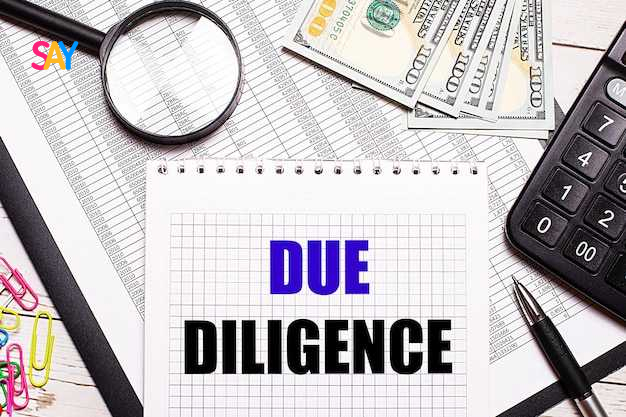Enhanced Due Diligence (EDD) represents a critical aspect of financial safety and risk management. In an increasingly complex financial landscape, institutions are confronted with a multitude of risks that necessitate a more rigorous approach to due diligence. EDD goes beyond the standard background checks and transactions monitoring to ensure that financial activities align with regulatory standards and ethical practices. By integrating EDD into their operations, financial institutions can better safeguard themselves against financial crimes, fraud, and other malicious activities that could potentially undermine their stability and reputation. Understanding and implementing EDD is thus indispensable for maintaining robust financial safety.
Understanding Enhanced Due Diligence And Its Importance
Enhanced Due Diligence (EDD) involves a comprehensive approach to scrutinizing high-risk individuals or entities to mitigate potential financial threats. Unlike standard due diligence, which covers basic verification and risk assessment, EDD delves deeper into the background, financial transactions, and operational practices of subjects deemed high-risk. This intensive scrutiny is vital for identifying red flags that might indicate fraudulent or illegal activities. For financial institutions, EDD helps in maintaining regulatory compliance and safeguarding against reputational damage. The importance of EDD lies in its ability to uncover hidden risks and prevent financial crimes that could have severe implications for the institution and its Stakeholders.
The Role Of Enhanced Due Diligence In Risk Management
- Enhanced Due Diligence (EDD) is a key component in identifying and managing high-risk scenarios in financial institutions.
- It involves a thorough investigation of customers or transactions that present a higher risk of financial crime or regulatory violations.
- EDD helps institutions in detecting and preventing illicit activities such as money laundering, terrorist financing, and fraud.
- By implementing EDD, institutions can better assess and mitigate risks, thus protecting themselves from potential financial losses and legal repercussions.
- EDD also aids in ensuring that the institution adheres to regulatory standards and maintains a strong compliance posture.
How Enhanced Due Diligence Protects Financial Institutions?
Enhanced Due Diligence (EDD) plays a crucial role in safeguarding financial institutions by providing a deeper layer of scrutiny for high-risk clients and transactions. Through EDD, institutions can identify potential threats that standard due diligence might overlook, such as suspicious patterns or connections to criminal activities. This comprehensive approach allows for the early detection of risks, enabling proactive measures to be taken before any significant damage occurs. By effectively managing and mitigating these risks, EDD helps protect institutions from financial losses, reputational harm, and regulatory penalties, thereby ensuring their stability and trustworthiness in the financial sector.
Enhanced Due Diligence And Its Impact On Compliance Requirements
Enhanced Due Diligence (EDD) has a significant impact on compliance requirements within financial institutions. By implementing EDD practices, institutions not only meet but often exceed the regulatory standards set forth by financial authorities. EDD requires institutions to conduct more thorough investigations into high-risk clients and transactions, ensuring that they adhere to anti-money laundering (AML) and counter-terrorist financing (CTF) regulations. This rigorous approach helps in avoiding compliance breaches and associated penalties. Furthermore, EDD supports institutions in demonstrating their commitment to upholding the highest standards of financial integrity and regulatory compliance.
Key Steps In Implementing Enhanced Due Diligence Processes
- Identify high-risk clients and transactions that necessitate enhanced scrutiny.
- Gather comprehensive information and documentation on the subject, including financial history and business operations.
- Conduct detailed background checks and risk assessments to uncover potential red flags.
- Continuously monitor and review high-risk accounts and transactions for suspicious activities.
- Implement robust reporting and escalation procedures for any anomalies detected during the EDD process.
- Regularly update and refine EDD procedures to align with evolving regulatory requirements and emerging risks.
The Future Of Enhanced Due Diligence In Financial Safety
The future of Enhanced Due Diligence (EDD) in financial safety is likely to be shaped by advancements in technology and increasing regulatory pressures. As financial institutions face more sophisticated threats, EDD will evolve to incorporate advanced data analytics, artificial intelligence, and machine learning to enhance its effectiveness. These technologies will enable more precise risk assessments and quicker identification of suspicious activities. Additionally, the growing emphasis on global regulatory harmonization will drive institutions to adopt more standardized EDD practices. Ultimately, the future of EDD will focus on leveraging innovative tools to ensure comprehensive financial safety and compliance in a dynamic environment.
Conclusion
Enhanced Due Diligence (EDD) is an essential tool for maintaining financial safety and regulatory compliance. By providing a deeper level of scrutiny for high-risk entities and transactions, EDD helps financial institutions manage and mitigate potential risks effectively. It plays a critical role in safeguarding institutions against financial crimes, protecting their reputations, and ensuring adherence to regulatory requirements. As the financial landscape continues to evolve, the role of EDD will become increasingly vital, driven by technological advancements and regulatory developments. Implementing robust EDD processes will remain crucial for institutions aiming to uphold financial integrity and stability.




